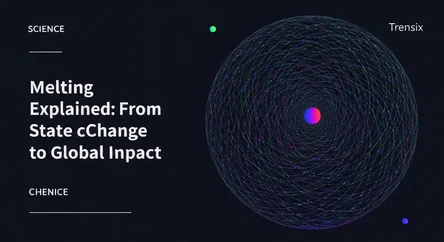Science
Melting Explained: From State Change to Global Impact

An explanation of melting, the physical process of a solid turning into a liquid, and why this concept is trending due to global climate change.
What is it?
Melting, also known as fusion, is the physical process that causes a substance to change from a solid to a liquid state. This occurs when the internal energy of the solid increases, typically due to the application of heat or pressure. As a substance is heated, its particles vibrate more rapidly. At a specific temperature, called the melting point, these vibrations become strong enough to overcome the forces holding the particles in their fixed positions, allowing them to move more freely as a liquid. For a pure crystalline solid, this transition happens at a constant temperature. The amount of heat required to melt a given mass of a solid at its melting point is called the heat of fusion.
Why is it trending?
The term "melting" is increasingly trending in scientific and public discourse due to its direct link to climate change. Scientists have observed an accelerated melting of glaciers and ice sheets in places like Greenland, Antarctica, and mountain ranges worldwide. This rapid melting is a direct consequence of rising global air and ocean temperatures. Recent studies and reports continually highlight record-low sea ice levels, extreme heatwaves, and the alarming rate at which even previously resilient glaciers are disappearing. This global phenomenon serves as a critical indicator of our planet's health and the profound impact of human activity on the climate system.
How does it affect people?
The effects of accelerated glacial melting are far-reaching. One of the most significant impacts is global sea-level rise, which threatens coastal communities and infrastructure with increased flooding. Millions of people, particularly in Asia and South America, rely on seasonal glacier melt for their freshwater supply for drinking, agriculture, and energy production; the disappearance of these glaciers jeopardizes water security. Furthermore, melting disrupts ecosystems, impacts fisheries, and can lead to more frequent natural disasters like landslides and floods. Beyond climate, the principle of melting is fundamental to many industries, including metallurgy for creating alloys and in cooking to transform ingredients.